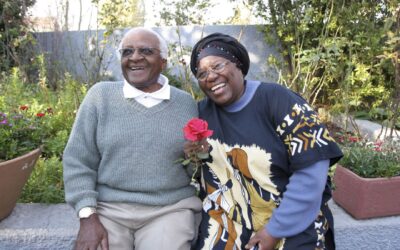A Scientist Observes the Power of Love and Gratitude
In the New York Times bestseller The Hidden Messages in Water (2004), Japanese scientist Masaru Emoto shares his findings on the effects of positive and negative words (and thoughts) on water molecules.
Emato was initially interested in the effect music might have on water. He played classical music to one sample of water and heavy metal music to another, using a high-speed camera to capture any changes in the molecular structure. To his surprise, the water samples exposed to the sounds of classical music produced beautiful, colorful, snowflake-like shapes; whereas those exposed to the heavy metal music produced broken, asymmetrical, dull patterns.
Emato and his team next experimented with writing positive words and phrases on pieces of paper and wrapping the paper around water sample bottles; they did the same with negative words and phrases.
“It didn’t seem logical for water to ‘read’ the writing, understand the meaning, and change its form accordingly,” Emato wrote. “But I knew from the experiment with music that strange things could happen.”
The water samples that were exposed to words like “love,” “compassion,” and phrases such as “thank you” produced beautiful snow-flake-like crystals, similar to the water exposed to classical music; and the water samples exposed to words like “fool,” and phrases like “I hate you,” produced dull, broken patterns.
“The lesson that we can learn from this experiment has to do with the power of words,” writes Emato. “The vibration of good words has a positive effect on our world, whereas the vibration from negative words has the power to destroy … We all know that words have an enormous influence on the way we think and feel, and that things generally go more smoothly when positive words are used. However, up until now we have never been able to physically see the effects of positive words … Words are the vibration of nature … ‘Love’ and ‘gratitude’ are the words that must serve as the guide for the world.”
Emato concluded that because human beings are primarily comprised of water (our bodies are 70% water) that positive and negative words must surely have the same powerful effect on us, and that the world could be healed through kindness.
He subsequently dedicated the rest of his life to sharing his findings and conviction in the power of words, hoping that future generations could grow up “with the understanding of love and gratitude” and spread love through words and intention.
While there is debate within the scientific community about the veracity of Emato’s findings, The Hidden Messages in Water struck a chord with readers around the world, was published in 24 languages, and became a New York Times bestseller. Could it be that Emato’s findings are so compelling for readers because they poignantly articulate our shared lived experience – that our thoughts, our feelings, our words deeply affect both ourselves and those around us?
I often think about the power of speech and communication in our work at Coral Tree, especially in our work with clients who are living very isolated lives or have recently been diagnosed with dementia or are suffering with advanced Alzheimer’s. (Or even just in terms of how older adults are treated in our world – even very active older adults often live invisible lives, no longer seen or treated as unique, still-living human beings, which creates its own form of isolation and suffering.)
I think Emato’s photographs leave such an impression because they offer us physical proof of the power of kindness and cruelty. They also articulate the reality of our interconnected world, and how our inner world profoundly affects the physical. As a society we are hyper-aware of the physical, our bodies, our senses – what we can see, touch, and feel, and hear; by comparison we lack the same awareness of our thoughts, feelings and emotions – and their tremendous influence in our lives. Emato’s photographs also show us how much we rely on kindness and the connection to others to feel well. Remember – it is only the water that is exposed to kind words that produces the beautiful snowflake images!
How Does the Way We Communicate Affect People with Dementia?
I’ve often wondered if, in fact, the greatest suffering from dementia arises as a result of how one is treated. Not only does your world become more and more internalized as the condition progresses and you are progressively unable to communicate in the same way, but you can become something of an object in people’s eyes, no longer seen or treated as a unique being who still needs connection, respect, friendship, and love.
You frequently see in doctors’ offices people discussing the symptoms of people with dementia as if they are invisible. While this is sometimes unavoidable for family caregivers – when you take a loved one to a doctor’s appointment you need to advocate for them and discuss their symptoms and behavior – I’ve always wondered how talking about people as if they aren’t there affects those older adults. How does that affect one’s sense of self and self-worth? Even if you can’t communicate verbally anymore, you can still hear and understand if the words being said about you are kind or indifferent. How does it feel to be treated like an aged object that people no longer know how to relate to? Especially when your body and mind are changing and your sense of independence and ability to connect with others is diminishing, in such a fragile state, wouldn’t the way people talk to and communicate with you potentially affect you even more?
One Dutch study How Dementia Affects Personal Dignity: A Qualitative Study on the Perspective of Individuals with Mild to Moderate Dementia found that the way people with dementia are treated by others actually has a more detrimental effect on them psychologically than the condition itself.
I found this study remarkable. It demonstrates, like Emato’s photographs, the power of kindness – and the importance of treating people with respect at all stages of the disease. By being thoughtful with our speech, with our actions, we can actually affect people’s experience of the disease.
The same Dutch study concludes that “the views of and treatment by others can perhaps be seen as the primary cause of the loss of self and self-esteem.”
The study also cites other research that supports how powerful – and fragile – our inner world is; and that our sense of self and experience of the disease is affected by how others see and treat us:
“For example, Clare (2003) found that memory failure tended not to deflate the individual’s sense of self-esteem in and of itself, but rather indirectly through the humiliating remarks made by others. In another study, Harman and Clare (2006) discovered that being treated differently by others since developing dementia was one of the most acutely felt experiences. A study by Steeman, Tournoy, Grypdonck, Godderis, and Dierckx de Casterlé (2013) showed that people with early-stage dementia struggled with their sense of being valued. Thus, perhaps even more than cognitive problems themselves, the reactions of others to these problems and the individual’s altered status within society may have a negative impact on people suffering from early-stage dementia.”
People with Advanced Dementia Still Need Others
In another study, My Name Is not Dementia, published by the Alzheimer’s Society in the UK, researchers talked to a range of people at varying states of the disease, and were able to use a picture card exercise to communicate even with people with advanced dementia about their quality of life.
For those with advanced dementia, the most important factor determining whether they felt they had a good quality of life was having “relationships or someone to talk to,” not the state of their physical health.
Some excerpts from the study:
Thus, the importance of relationships and someone to talk to is a basic human need and there is no particular reason to think that dementia would change this – the research clearly reinforces this.
A strong sense emerges that what is important for the quality of life for people with dementia is perhaps not very different from those without the condition.
What this literature demonstrates is the serious problem with the fact that ‘dementia’, once diagnosed, is all too quickly perceived to be the all-consuming feature of a person’s identity. The reality is that people remain complex and multi-faceted and their quality of is life no less complex.
Repeating Kind, Positive Words Changes Our Bodies & Lowers Stress
Another article, “How You Can Turn On Thousands of Life-Enhancing Genes with Your Words,” explains the findings of Dr. Herbert Benson, Associate Professor of Medicine at Harvard Medical School and Founder of the Mind Body Medical Institute. Dr. Benson posits that simply repeating positive words like love, peace, and compassion or reciting mantras or prayers can actually change our bodies at the physiological level.
“In fact, thousands of genes associated with stress reduction, anti-aging, reduced inflammation, and greater cellular-level health/energy get turned on.”
And Andrew Newberg, M.D. and Mark Waldman in their book Words Can Change Your Brain as well as their Psychology Today article “The Most Dangerous Word In the World” discuss various research that proves the power of positive words and kind speech, including that “the mere repetition of positive words like love, peace, and compassion will turn on specific genes that lower your physical and emotional stress.”
With all of this research, we must make more of an effort to treat people with dementia with kindness and sensitivity at every stage of their lives. Through our words and speech we have an opportunity to help ease their suffering.
Even People in Comas Can Still Hear & Sense What’s Happening Around Them
Did you know that many people who’ve awoken from comas have said they were able to hear everything happening in their hospital rooms? Geoffrey Lean, in this 2006 article in the Independent said that while he was in a coma he could hear everything the doctors and nurses and his family members said. And he said he wasn’t scared because the nurses took the time to tell him what was happening. This really struck me.
“It was more puzzling than scary,” he said. “This, I think, was partly because the nurses took the trouble to tell me what was happening. They would say that they were going to give me an injection, or take my blood pressure, before I felt the needle going in or the tourniquet tightening.
“I could also feel my dear wife’s hand in mine, our fingers entwined. I could hear her telling me that the children were all right and that their schools and my office were being supportive. I could not work out what she was doing in the strange world I now inhabited, but her presence was enormously reassuring.”
Another article, “Can Coma Patients Hear You? Families Should Tell Stories to Loved Ones in a Coma” discusses the positive effects of telling familiar stories to loved ones in comas, helping them recover more quickly.
“Researchers created audio recordings of family members telling a familiar story that the patients heard four times a week for six weeks via headphones. They also gauged how the blood oxygen levels in the brain changed while listening to recordings by exposing patients to both familiar and unfamiliar voices telling different stories while in an MRI at baseline. Families of coma patients sat down with therapists to discuss at least eight important stories that would resonate with their loved ones.
“’We believe hearing those stories in parents’ and siblings’ voices exercises the circuits in the brain responsible for long-term memories,” Pape explained. “That stimulation helped trigger the first glimmer of awareness.’
“At the end of the six weeks MRI scans revealed the patients’ brains increased in neural activity when they heard a loved one calling out their name and telling a memorable story. Patients who heard the recordings of a familiar voice covered their consciousness faster and had more of an overall improved recovery compared to patients who did not hear recordings”
If a supportive presence, thoughtful speech, and familiar stories have such a profound effect on people in comas, imagine the effect on our loved ones with dementia? Just because we don’t receive the same visual and verbal cues from them that we did prior to their diagnosis, doesn’t mean that our speech and behavior doesn’t have a profound effect on their inner world. Our words, our relationships, our varied means of communicating with one another are all ways of caring for each other. How we treat others with our speech continues to matter at all stages of our lives, and is especially important to consider in relationships with people with dementia and other vulnerable groups.
Again and again, research – and our own lived experience – supports Emato’s findings that “‘love’ and ‘gratitude’ are the words that must serve as the guide for the world.”
I’ll leave you with one of my favorite quotes, from author and beloved USC professor Dr. Leo Buscaglia, who, when one of his students committed suicide in the ‘60s, began a noncredit class called Love 1A, in which he and students, together, contemplated the meaning of love, human connection, communication and relationships, and the value of positive touch, especially hugs:
“Too often we underestimate the power of a touch, a smile, a kind word, a listening ear, an honest compliment, or the smallest act of caring, all of which have the potential to turn a life around.”










0 Comments